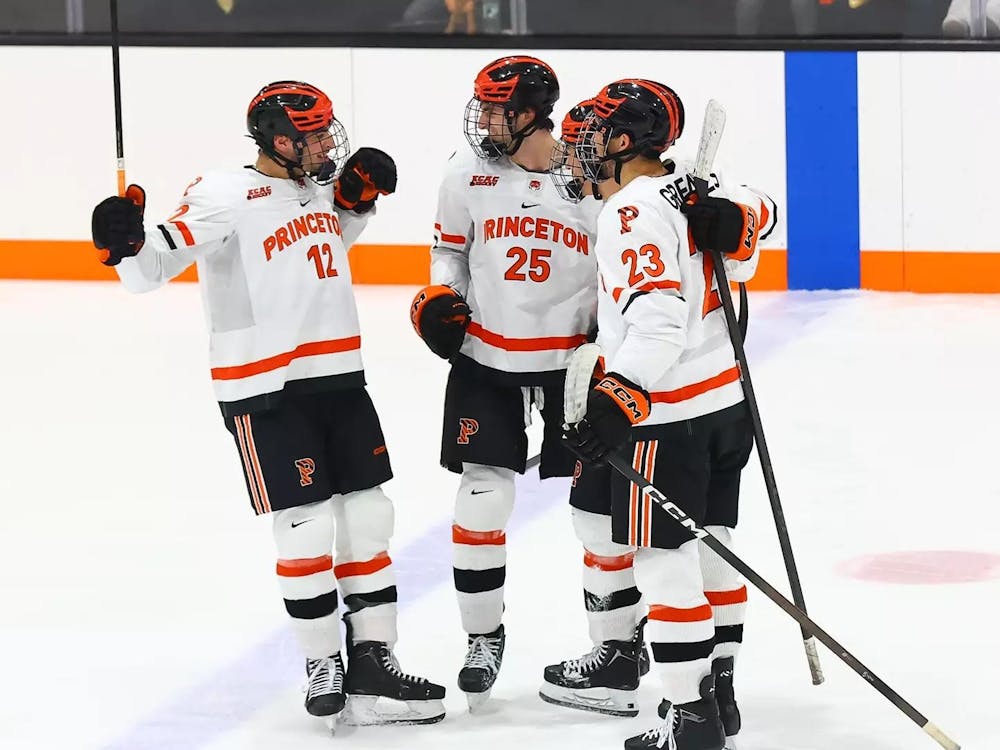Incredibly underrated and wonderfully talented, Finneas O’Connell (known by his stage name FINNEAS) first got his fame as the brother and producer of globally-recognized superstar Billie Eilish. His first step into a spotlight of his own was through his debut EP “Blood Harmony,” containing hits with hundreds of millions of Spotify plays, like “Break My Heart Again” and “I Don’t Miss You At All.”
It’s been two years since the release of “Blood Harmony,” and FINNEAS is back, to the joy of millions of fans (including me) with his debut album “Optimist.” For many, expectations for the album were high: FINNEAS has had a hand in making one of the most iconic voices of our generation, Billie Eilish, and his solo songwriting is clearly superb.
He’s clearly delivered on those expectations. This album was yet another testament to his great lyricism and ability to write catchy, genre-hopping melodies. Additionally, his production — despite delving into a multitude of different sounds, like EDM or creepy alternative — remains incredible and fresh in each track.
My biggest critique, however, is that many of the sad piano ballads sounded very similar to one another, to the point where I omitted a few of those tracks in the track-by-track analysis below because I genuinely had nothing to add. Although FINNEAS is wonderful at writing tearjerkers, so many of them in one album lessens their emotional impact: it makes them feel less memorable and more like a blur.
“A Concert Six Months From Now”

This track explores the interesting relationship between time and love through a melancholy, minimalistic ballad featuring mostly piano and guitar. Personally, I enjoyed this showcase of FINNEAS’s great lyricism even though I didn’t think it stood out very well from the other ballads in the album about similar topics.
“The Kids Are All Dying”

This track reminds me of Bo Burnham’s hit Netflix special “Inside” because it similarly deals with FINNEAS’s failed attempts at “saving the world” and how insensitive he feels singing about personal problems as a white man in America.
Despite the darkness of its themes, the song’s instrumental can be lighthearted at times — one of the main instruments is a bright electronic guitar. I enjoyed this honest take on sociopolitical issues in “Inside,” and I loved hearing it on FINNEAS’s album. Not to mention that this song is an absolute earworm!
“Happy Now?”
The fact that FINNEAS chose to put this track right after “The Kids Are All Dying” is quite interesting because this song, though genuine, is a first-world problem. It’s about how FINNEAS once thought fame would bring happiness but now, as a celebrity, finds that that isn’t the case. Melodically, it reminded me of “Billie Bossa Nova” by Billie Eilish.
The most enjoyable part of the song was when, instead of a traditional bridge, the instrumental dissipated, and all of a sudden the only thing I could hear was lighthearted, catchy whistling before the music exploded into the chorus.
“Only a Lifetime”
What makes life meaningful? What gives us purpose? To FINNEAS, the answer lies in our connections and memories with others.
Since this track is another instance of the album’s emphasis on the relationship between time and love, it’s unsurprising that this is another depressing piano ballad. The song combines preachy (“I’m unimpressed / By the people preaching pain”) and personal (“I’m unprepared / For my loved ones to be gone”). However, melody and instrumental-wise, I think it suffered from the ballad-blur issue.
“The 90s”
This track is one of FINNEAS’s top songs from the album, and I can see why. It stands out from the rest and utilizes a surprise factor like Billie Eilish does in “Happier Than Ever.” When the roaring, Zedd-like synth came on out of nowhere, I had to resist the urge to jump.
While the chorus is high-energy, the lyrics are rather sad, serving as a criticism of the Internet and our society’s busy-bodiness. “The 90s” is one of my personal favorites from this album.
“Love is Pain”
“Love is Pain,” another depressing piano ballad, is quite a departure from the high energy of “The 90s.” It’s about the less glamorous parts of love — the price of being attached to someone.
Currently, “Love is Pain” is sitting at the top most streamed song from the album on Apple Music, which I don’t understand very much. For me, it didn’t stand out from the rest of the sad piano ballads of the album. Its words are just as impactful as that of “Only a Lifetime” and the melody just as somber as “A Concert Six Months Ago.”
“Medieval”
My personal favorite, “Medieval” is catchy, Fall Out Boy-esque, and reminds me of the creepiness of much of Billie Eilish’s music, except with a more electronic twist. The song is about the backwardness of cancel culture and how the will of the public can dispose of celebrities like they’re overthrown kings.
FINNEAS isn’t a stranger to it. Earlier this year, his sister Billie was “cancelled” on Twitter, TikTok, and other social media platforms for a recently-resurfaced video of her as a 13-year-old speaking in an accent mocking East Asians and saying a racial slur. While the hate towards her has died down now, I wouldn’t be surprised if those events influenced FINNEAS’s writing.
“Around My Neck”
“Around My Neck” is very different from the rest of FINNEAS’s album in that it deals with an untouched topic thus far: sex. The melody and lyrics feel very slyly flirtatious; vocally, FINNEAS doesn’t shy away from using his masterful vocal fry to build on that provocative feel.
Later on in the song, I was taken aback by his use of shouting lyrics in a heavy metal-esque way, which was unexpected in such a seductive song. Though I didn’t think the shouting worked well here, I would love to see FINNEAS utilize this technique more often in future songs.
“What They’ll Say About Us”
At this point, I was beginning to get bored of the depressing piano songs; “What They’ll Say About Us,” though, stands out, and it comes at a close second to “Medieval” for me. Maybe it’s because the lyrics deal so closely with death; the story is about someone who encourages their sick or dying lover to keep going. Maybe I’m just a sucker for sad songs masquerading as comforting songs. Maybe it’s something about FINNEAS’s smooth, reassuring deep voice.
Regardless, I was on the verge of tears while eating my omelet. Thank you, FINNEAS.
“How it Ends”
“How it Ends” does a wonderful job of tying together the recurring themes of “Optimist,” from deriving meaning from our relationships to condemning capitalism.
FINNEAS sprinkles in some of the vocoder background vocals — which I loved hearing in “The 90’s” — towards the end of the song, and finishes off the album with a playful instrumental. The song wasn’t a hit by itself, but as a final track it gets the job done.
Final Thoughts
FINNEAS is definitely now towards the top of my list of artists to watch in the future. He’s an incredibly versatile vocalist and a master of catchy melodies across genres; from intense EDM to acoustic ballads, FINNEAS is a force to be reckoned with.
Claire Shin is a Contributing Writer for The Prospect at the ‘Prince.’ She can be reached at claireshin@princeton.edu, on Instagram at @claireshin86, or on TikTok also at @claireshin86.








